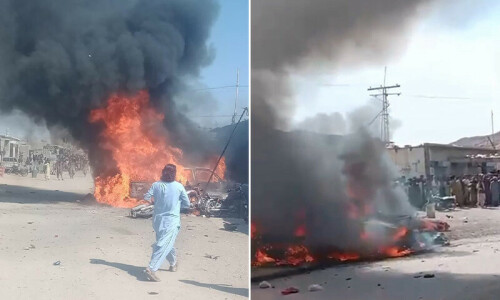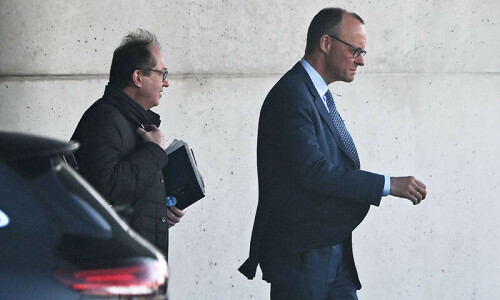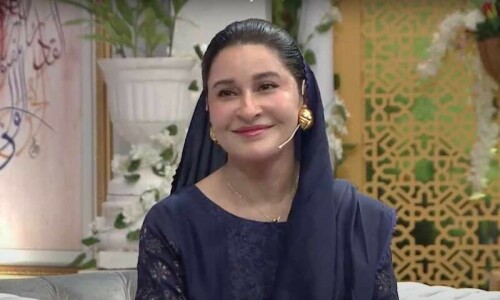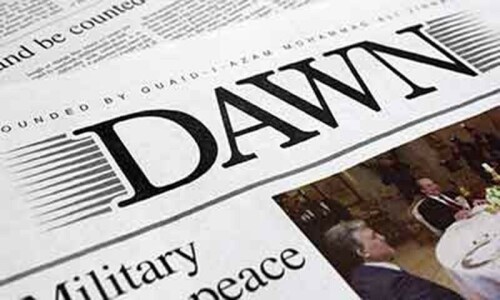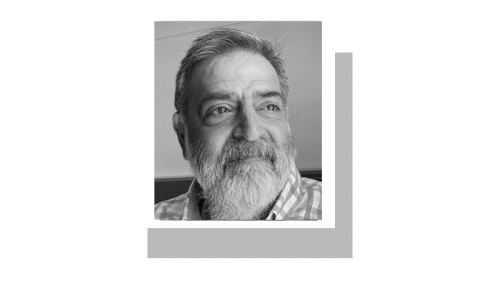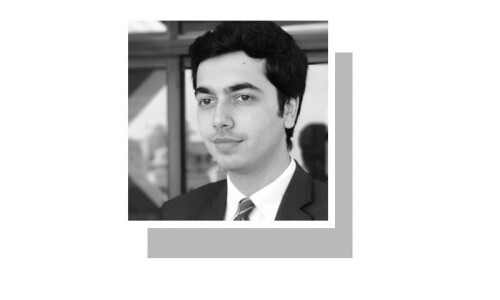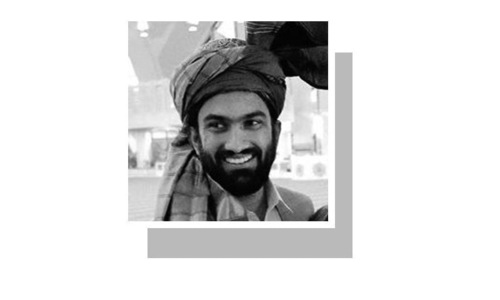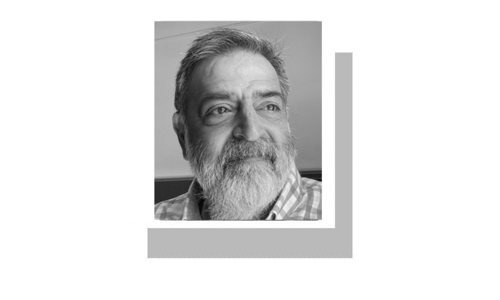 Pakistan’s current set of economic leaders seem to be moving towards the adoption of the approach I have been advocating for several months. But they don’t seem to have fully accepted what I had put forward.
Pakistan’s current set of economic leaders seem to be moving towards the adoption of the approach I have been advocating for several months. But they don’t seem to have fully accepted what I had put forward.
I suggested that it would not be prudent to subject ourselves to the conditions the IMF invariably imposes when it is approached for emergency financing. This happened in the early Musharraf period when the fund ordered, and Pakistan accepted, a severe monetary tightening and an equally severe fiscal retrenchment. The result of the draconian measures that were then adopted was a sharp slowdown in the pace of economic growth and sharp increase in the rate of unemployment.
The Fund’s approach has changed somewhat since its involvement in the resolution of the Asian financial crisis a decade ago. A number of notable critics including the Nobel Prize winner Joseph Stiglitz, argued that the Fund had done a great deal of damage to the Asian economies. But the approach has not changed enough for Pakistan to be comfortable with what it will be asked to do. Pakistan’s economy at this time is extremely weak; if it is required to adjust quickly it would produce consequences that may cause long- term damage. What are the options available to Pakistan to tackle the present situation?The debate in Pakistan about the wisdom of going to the fund for a programme and the government’s reluctance in taking that step have been noted in a number of important economic policy circles in the West.
One recent example of this is an article contributed to the Financial Times by David Rothkoph. “But as the crisis has unfolded, the first impulse of some of the countries in trouble has been to seek aid from emerging economy lenders, from countries that possess both the financial resources to help and a more accommodating attitude to lending conditions”, he writes. This is in line with what I had recommended some months ago. However, my plan included not only approaching emerging economies such as China and the capital-rich countries of the Middle East but also such developed countries as America, Britain and Japan that have strong strategic interests in the area in which Pakistan is located.
Turning to Pakistan to support his argument that the Fund now has competition as a supplier of funds to the countries in extreme economic distress, Rothkoph writes: “So to whom did Pakistan turn in its hour of need? Mr Zaradri travelled to Beijing to seek a loan from the country with the largest reserves.
While specifics of the deal with the Chinese are unclear, it appears they will offer help in the form of commercial deals, energy aid and participation in larger international rescue package. The Pakistani want to augment this with funds from the oil producing nations of the Persian Gulf that have agreed to discuss a ‘friends of Pakistan’ bail out with China, the US and others in an effort designed not to appear western dominated.
Again the IMF has subsequently (and with explicit unease) been approached and is likely to play a role in any final package, although there are signs it may again soften its usual terms.” The approach I had suggested approaching the donor community not sequentially but all at the same time on the basis of a well developed strategic framework.
Pakistan is not the only country that is faced with the “Fund or not the Fund” dilemma. Turkey is another country that has been forced to think of returning to the Fund for help. In May of this year the country concluded a three year $10 billion IMF programme and, as Pakistan had felt in 2003, thought it would not have to return to the institution, at least not that soon.
“We have good policies,” said Mehmet Simsek, Turkey’s finance minister in a recent interview. “One would hope that the markets would say that there is little role for the IMF.” But the pressure on the country’s finances increased as the booming stock market nosedived resulting in the flight of capital. This exposed the country to other weaknesses that been hidden by the economic boom of recent years. One of them was the mismatch between dollar borrowing and dollar assets on the part of the country’s corporations.
UBS, the Swiss bank, has estimated this to be $73 billion.
Pakistan is in a situation somewhat similar to this where a lot of external capital has gone into the sectors (telecommunications and real estate) where the returns are in domestic currency which will need to be converted into foreign exchange. This is a contingent liability that has not figured in government’s plans for the future.
The most appropriate way of handling this crisis is to go to the fund in the company of other donors, not alone. By getting the World Bank and the Asian Development Bank to cooperate with Islamabad in developing a strategy that works in the short-term as well as the long- term, Pakistan may be able to avoid some of the usual fund conditionality that will put the country through the wringer forcing it to adjust its fiscal and balance of payments disequilibrium over a short period of time. This may restore stability to the economy as happened earlier this decade but will have lasting consequences.
It may be fortunate for Pakistan that it is dealing with this crisis when most of the developing world is also experiencing extreme economic stress. Some moves are under consideration by a number of development institutions to help the developing world to deal with these extraordinary set of circumstances. For instance, Robert Zoelick, the World Bank president, announced that his institution will be prepared to set aside $100 billion for the purpose of aiding developing countries that are under great economic strain.
Some of this money may become available for Pakistan. The Asian Development Bank may make similar moves. This money will not come from the soft windows of the development institutions that don’t charge any interest but a small amount to cover administrative expenses. Even then these funds will be less expensive than those available from the IMF but since they can be serviced over a longer period of time than the Fund’s resources, they would be cheaper to handle.
Have we already committed ourselves to the Fund and is it too late to return to a multiple-donor strategy based on a policy framework that would include both stabilisation and growth?
Is there some wriggle room left which we could use to preserve some aspects of an approach that would not comprise growth, reduce the rate of increase in employment, reduce the incidence of poverty, narrow the income gap and set the economy on a trajectory of sustainable growth.
These should be the main objectives the policymakers must follow not only for the good of the economy but also for obtaining domestic peace and political tranquility? I don’t have answers to these questions since I am not privy to the discussions Islamabad is having with the Fund. But in any discussions with the Fund I would press for the maintenance of the rate of economic growth at no less than six per cent a year This is the rate of economic expansion that is needed to create jobs so that the rate of employment does not increase any further.
This is critical for Pakistan given the rise of extremism which draws its recruits from the army of the unemployed and the underemployed in the urban part of the economy. Such things do not normally appear in the calculus of an institution such as the IMF.
Pakistan should take advantage of the fact that there is considerable flux in the global economic situation. The heads of state and governments of 20 large developed and developing economies met in Washington on November 15 to discuss what could be done to stabilise the global economy and what kind of institutional underpinning is needed by the new world economy. These discussions will lead to some significant changes in the way countries and institutions should resort to the kind of crisis the world is facing today. Pakistan will do well not to commit itself to a programme that has flexibility to adjust to these new developments.




















